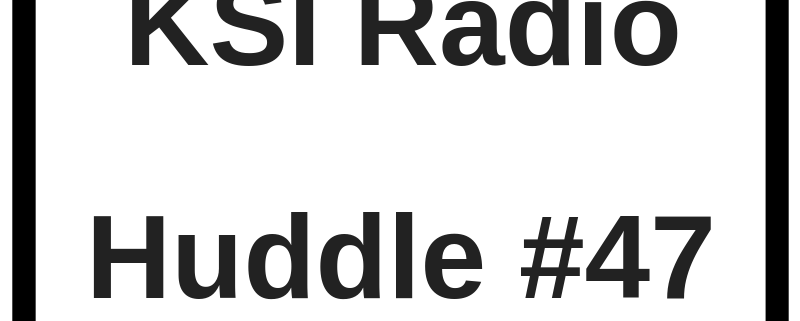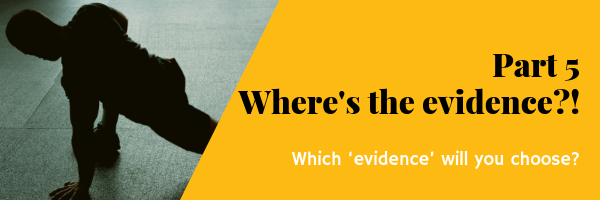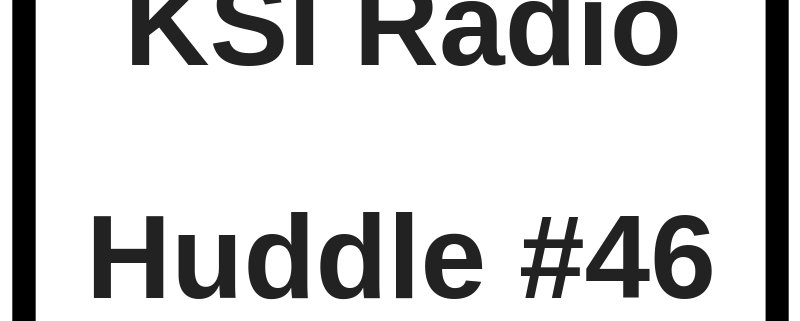A young adult was watching a physical coach performing a pre-training static stretch with a large group of young athletes. They turned to those around them and said:
“You know they are wasting their time!?”
The coach whose professional implementation judgments they were calling into question was myself. The year was 2018.
Which type of evidence were they operating on? To understand that answer here’s a clue – they were an undergraduate student. There’s additional irony in this story as their college course was in physical therapy. Here a few years in undergraduate study trumped the experience and conclusions of a person who had conducted four decades of multi-year, large sample size, many sports, many different countries experiments.
Reminds me of the 1980s when periodization was taught dogmatically and as a fact in coach education despite having no real science to justify it. If you were to engage in any speed work before developing an ‘aerobic base’, you were also ‘wasting your time’. Actually, more than that, the athlete was definitely going to get injured.
Was there any real science in this? No, but that didn’t matter. Once enough people were echoing the myth, and that was enough. Once it’s in printed word, that’s enough. Once certain ‘experts’, ‘gurus’ or ‘leading’ coaches saying it, that’s enough. It forms a ‘truth’ all of it’s own and everyone assumes that for a theory to reach this level of ‘definiteness’ it must be fact, supported by science.
I was keen to understand the science of this conclusion. With all due respect to the aerobic base proponents, I didn’t agree. So when I got the chance to listen to a strong advocated of this training method at a national convention I listened intently….. Until I heard the evidence – this is what it was:
…a newspaper article published a story where a person said they heard an New Zealand All-Black say they felt fitter because of their off-season aerobic training.
That was it?!
I was keen two to learn of the convincing science confirming that static stretching before training is bad. Here are two examples of this ‘evidence’:
xxxx says wild animals don’t do static stretching–they do long, slow-moving stretches, or even explosive bounding movements that form an integral part of all of their lives. “And the stretch is not a relaxed stretch; it’s done with a lot of tension. That’s an important point because we are often told to stretch only relaxed muscles. Look at the stretch of a cat, how it stretches up to its maximum with tension, according to what feels right. This type of active intuitive stretching equips you to cope better with strenuous exercise.[1]
Really? That was it?!
If you took rubber bands out of the freezer and prepared to use them by stretching them, what do you think would happen? You would easily break quite a few. This is why athletes frequently pull muscles…[2]
Really? That was it?!
So it must be true. After all, here’s a professional development organization also stating it’s true:
In general, there is little need to place much emphasis on stretching in your exercise routine, at least from a health or injury prevention perspective. [3]
And here’s another ‘guru’ telling you it’s true:
None of our athletes, from pros down to middle school students, stretch prior to these workouts…Our athletes do not do static stretches…[4]
Now did the science change with this very ‘guru’ ‘changed his mind’? An, no.
One thing that’s fundamentally different now from when the original ‘Functional Training for Sport’ book [2004] was written is there was no emphasis on tissue quality…tissue work…rolling, stretching. I can’t believe there was no reference to static flexibility and no reference to foam rolling just a few years ago. We had no concept of changing tissue density [tension]. [5]
I couldn’t believe it either! That this ‘expert’ published on such limited experience in that they no idea in 2004 that stretching and rolling contributed to altered muscle tension! The ‘we’ needs to be ‘I’….”I had no concept….”
What didn’t change was the damage that was done. The myth became a paradigm and the paradigm became ‘assumed science’. Sure there are some abstract short term studies showing that pre-training did certain things. Where there any conducted over years confirming that removing pre-training static stretching was superior?
So perhaps we can forgive or understand this undergraduate ‘I know’ attitude on the basis that all she knew was the theory she was told, and we are in an era of anti-static stretching.
But what about the ‘gurus’ who mess with the values of the average professional and end user and whose ‘teachings’ depends on the popular trend at the time? The way the wind is blowing on any given period of history….
Here’s a great example of this questionable influence. Say a physical coach with university qualifications and 20 years of industry experience? And who was struggling with chronic back pain? What ‘evidence’ would they rely upon to guide their ‘stretching is bad’ position on static stretching? The below is a verbatim transcript:
Strength Coach: I’ve read a lot of stuff that says doing static stretching before [training] actually makes the muscle weaker and the contractions less forceful. So I’ve always seek out stuff to validate this bias. So I’ve never really dived into stretching.
IK: So just as a matter of interest, you’ve heard the theory. Did you test the theory?
Strength Coach: No.
IK: So you’re leading a life on the basis of other peoples opinions? Can I ask you another question – how many original studies have you cited that came to that conclusion? The hard copy or electronic copy in your hands?
Strength Coach: Zero.
IK: I’m glad you’re honest with me.
Yes, just as the majority do – this extremely well intended and experienced physical coach has chosen the ‘evidence’ of the consensus thinking.
And they are not alone in doing so…..
You have choices in evidence, and that is your prerogative. I simply encourage you to be clear about your ‘evidence’, and encourage you to consider a more holistic approach to ‘evidence’. This means that personal and professional experience and observations with cause-effect relationship do count!
References
[1] Reference withheld to protect the message.
[2] Reference withheld to protect the message.
[3] ACSM’s Health & Fitness Journal (July/August 2009), Question Column by David C. Nieman Dr.Ph., FACSM
[4] Reference withheld to protect the message.
[5] Reference withheld to protect the message.



